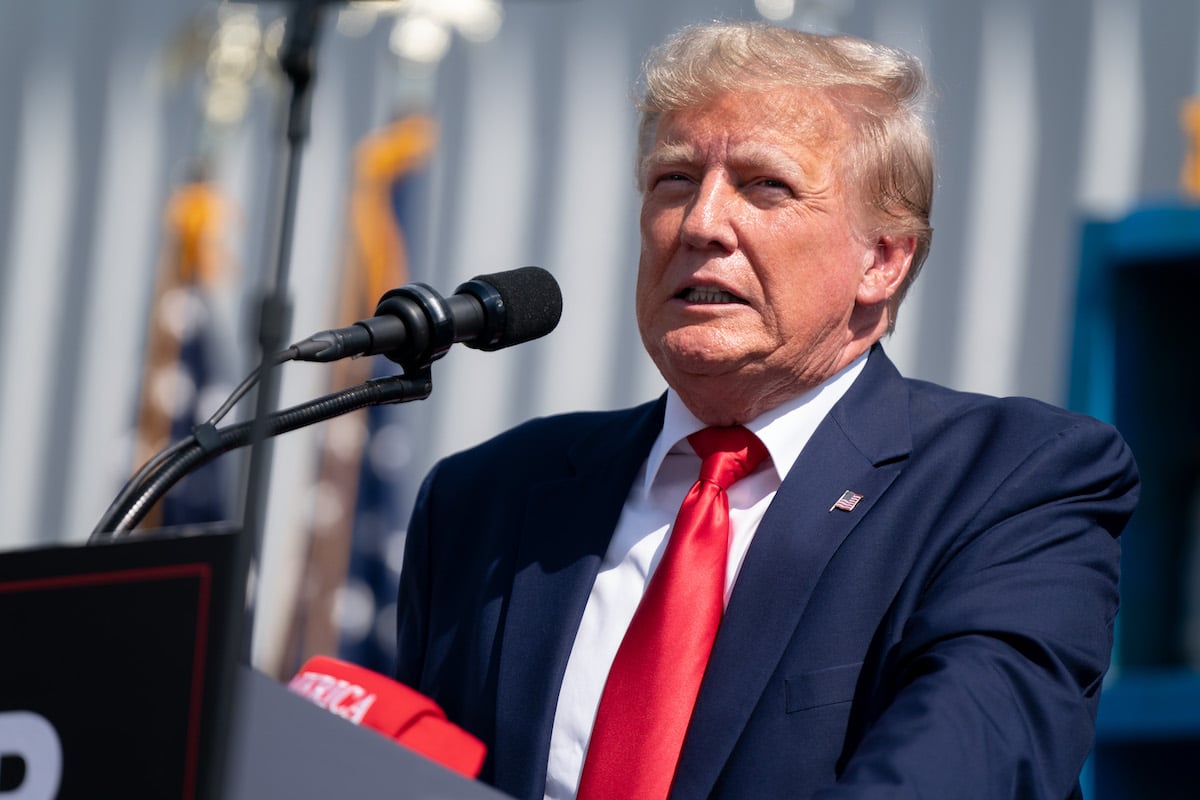In a wide-ranging interview on NBC’s Meet the Press, President-elect Donald Trump doubled down on an unusual pledge to end birthright citizenship through executive action on a dictatorial “day one” of his administration, despite significant constitutional and practical barriers to such a move, a longtime pet project of Trump’s.
“We’re going to have to get it changed. We’ll maybe have to go back to the people,” Trump said. However, he failed to specify exactly how he would circumvent the 14th Amendment’s explicit guarantee that “All persons born or naturalized in the United States, and subject to the jurisdiction thereof, are citizens.” One person tweeted, “Change the Constitution?” Why yes, X user, this is the plan.
Trump falsely claimed American exceptionalism in this area, stating, “We’re the only country that has it.” In reality—and since, y’know, Google is free—over 30 nations provide birthright citizenship, including Canada and Brazil, just in our hemisphere.
Constitutional scholars point to nearly insurmountable obstacles facing any attempt to end the practice. Amending the Constitution requires a two-thirds majority in both houses of Congress plus ratification by 38 states—a high bar requiring great public energy and desire outside of Trump. More specifically, even if every Senator supported the change to the Amendment, it would be 14 votes short of the requirement, and no Democrat in either house would support it. No amendment has ever been ratified through an alternative pathway.
The Supreme Court has consistently upheld birthright citizenship, most notably after the infamous Dred Scott case, with the landmark 1898 case United States v. Wong Kim Ark. This being said, Trump has a favorable high court he appears to be willing to test.
Beyond the obvious legal hurdles that would likely last the bulk of Trump’s term lies the undeniably profound economic impact of such a dramatic policy shift. According to Migration Policy Institute estimates, ending birthright citizenship would create 4.7 million non-citizens by 2050. The implications for the American workforce would be severe—undocumented immigrants currently make up 4.6% of U.S. workers, with exceptionally high representation in construction, agriculture, and hospitality sectors. In other words, they do dangerous, sometimes menial, and usually thankless jobs many other Americans will not do, and these jobs are often done without a working wage attached.
And they contribute their fair share. In 2022 alone, undocumented immigrants contributed $46.8 billion in federal taxes and $29.3 billion in state and local taxes. Pew Hispanic Center research shows that approximately 8% of U.S. births in 2008 were to unauthorized immigrant parents.
Trump’s proposal highlights a paradox in Latin American political alignment with his agenda. Despite his policies directly targeting immigrant communities, some Latino voters continue supporting him—a dynamic some scholars attribute to complex racial and social hierarchies that predate immigration to the U.S. The scale of institutional change required to implement Trump’s expressed vision raises deeper concerns about democratic norms. Circumventing both the Constitution and Supreme Court precedent would require not just executive overreach but the compliance of multiple government branches and institutions traditionally serving as checks on presidential power. It would also require the implicit agreement of businesses, even whole industries, all over the country.
Coming from a candidate who has openly spoken of being a “dictator” on day one, the birthright citizenship pledge takes on darker significance. While the practical and legal barriers make immediate implementation unlikely, his implied willingness to sidestep or overrun constitutional protections signals potential challenges to America’s democratic foundations—which, if people were listening to a lot of Trump acolytes, is the desire.
The economic data makes clear that birthright citizenship, far from being a liability, has helped integrate generations of immigrants into the American workforce and tax base. Any attempt to end it would face not just legal challenges but resistance from industries dependent on immigrant labor and communities shaped by centuries of constitutional birthright citizenship.










Published: Dec 9, 2024 12:44 pm